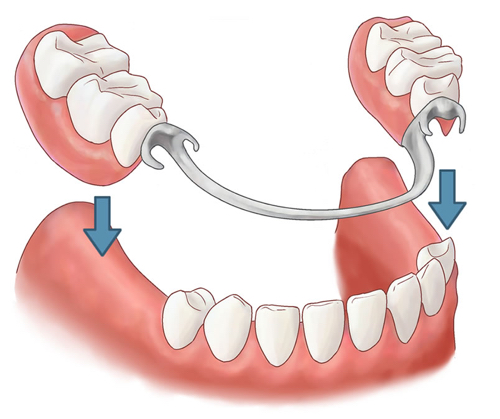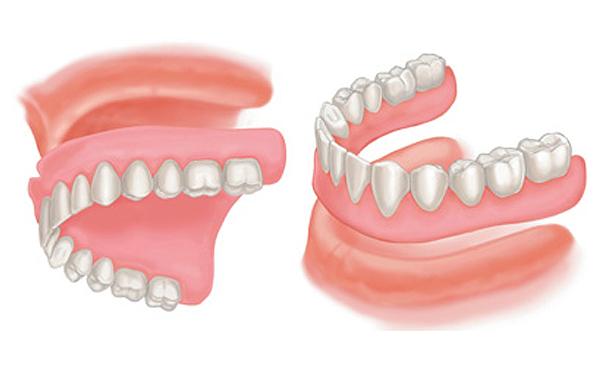17 Macedon St SUNBURY VIC 3429
Dentures
As we age, our teeth gradually become brittle and crack or chip more readily. Deep decay adds to the problem.
If present, sever gum disease (called periodontitis) may damage gums and jawbone, leading to tooth loss. If teeth are badly affected by wear, trauma, decay or gum disease, your dentist may suggest extraction as the best treatment option.
Even at a relatively young age, some people have extensive loss of teeth. When many teeth are lost or extracted, a denture may have to be fitted to maintain normal chewing, bite (occlusion), speech and appearance of the upper and lower jaws.
Types of Dentures:
PARTIAL DENTURE
A partial denture is made to fill the space left by a few missing teeth. To hold the partial denture in position, clasps are used to secure the denture to nearby natural teeth.
FULL DENTURE
A full denture is made when all the natural teeth are missing. It is fitted to replace the upper teeth, lower teeth or both.
IMMEDIATE DENTURE
Our Dental Prosthetist inserts an immediate denture at the same appointment as the teeth are extracted. The advantage is that the patient avoids a period without teeth.
OVER-DENTURE
An over-denture is a denture that fits:
- Over the top of remaining teeth
- Over tooth roots that have had root canal treatment, or
- By attachment to dental implants
Remaining teeth or dental implants act as anchors to secure it in place.
Materials:
Dentures can be made of acrylic or metal. Our Dental Prosthetist will advice you about the best material for you.
Making and fitting of dentures:
Dentures are composed of artificial teeth bonded to a plastic base. The Dental Prosthetist makes an impression of the dental arch and remaining teeth (if any), using a special impression material. The colour and shape of the artificial teeth can be closely matched to your natural teeth.
Our Dental Prosthetist will advise you about how long to wear your new dentures each day. A few days or weeks are needed to become accustomed to the dentures.
Over the first few days:
- The denture may feel tight and uncomfortable
- The denture may feel bulky, as if crowding the mouth
- Your gums may feel sore
- Some people experience a gagging sensation at the back of the throat
- You may notice an increase in the amount of saliva in your mouth
- Eat soft foods
- Speech may be affected but will improve. Wearers of partial dentures may find their speech improves immediately because missing teeth have been replaced.

Denture Adjustment:
After sometime the denture may feel loose and awkward. Our Dental Prosthetist can adjust the fit. This can be done by placing an inner lining in the denture. Several adjustments may be required before the final fit is satisfactory for the long term.
Over dentures and partial dentures usually need fewer adjustments than full dentures. People who have retained some natural teeth usually have less gum shrinkage and fewer changes in the underlying jawbone, so their dentures may retain a good fit for longer.
Loose dentures can cause irritation and ulcers of the gums that are painful and may become infected. If your dentures become loose, see your dentist or dental prosthetist to have then adjusted.
Do not try to adjust your own denture. It has been carefully made to fit your mouth. Home repairs will end up causing more harm than good.
Ready for a Consultation?
Phone Macedon Street Dental to make an appointment with a dentist to discuss the options available to you. We will provide a no obligation, full written quote detailing the complete treatments.
Call MACEDON STREET DENTAL in Sunbury on 03 9744 3677 to discuss your needs.






